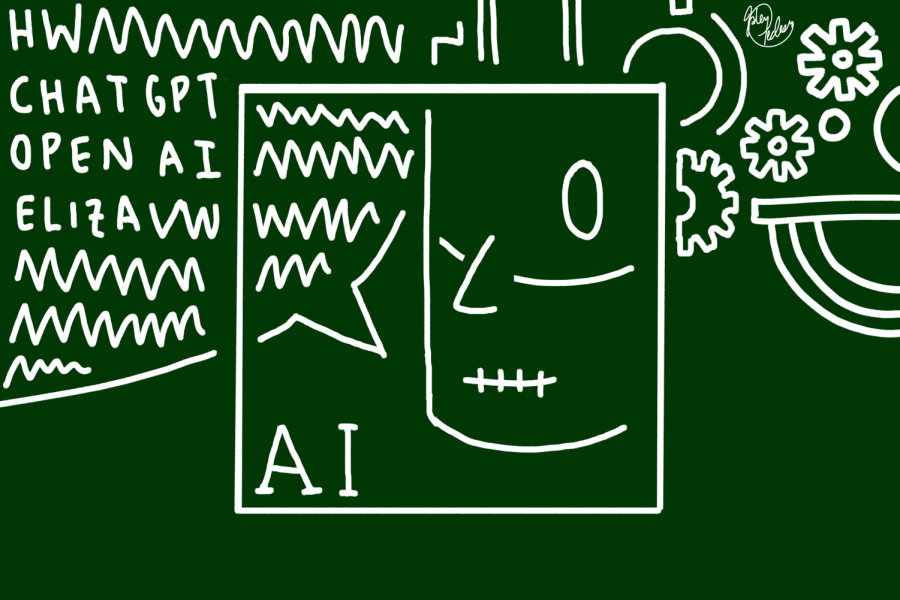AI Series: Part 1
Should I Have a Robot Do My Homework?
Over the past few months, there have been significant developments in artificial intelligence. For example, ChatGPT, a chatbot developed by OpenAI, has emerged as a sophisticated model trained on text-based data to generate human-like responses to questions. The idea of AI that can communicate with humans goes back to 1966 with the very first AI chatbot, ELIZA, created by Joseph Weizenbaum. Chatbots all function similarly, with a user inputting a query. The AI then uses machine learning algorithms to interpret large data sets inputted by engineers and apply them to a question to analyze it and create a reply. ChatGPT is by far the most popular tool at the moment, but it’s not the first and certainly won’t be the last.
Let’s suppose everyone uses artificial intelligence in a responsible and educated manner. It could bring numerous benefits to society. With the advancement of technology, big data analytics —“the process of uncovering trends, patterns, and correlations in large amounts of raw data to help make data-informed decisions”— can offer valuable insights that can inform business strategies. For example, big data can help companies identify customer preferences and market trends, enabling them to tailor their offerings to meet customers’ needs. This can increase sales, customer satisfaction, and, ultimately, profits. Additionally, AI can lead to innovation by uncovering patterns and insights that may have gone previously unseen, leading to the developing of new products, services, and solutions.
But that’s not precisely how human nature works. Therefore, it is essential to prioritize moral and ethical considerations to ensure responsible practices when using AI technologies.
As AI technology advances, we will likely see its impact across many industries, including healthcare, finance, and transportation. For example, healthcare professionals could use AI to analyze patient data and provide more personalized treatment plans; in finance and business, AI could help detect fraud and automate processes; and lastly, In transportation, AI-powered autonomous vehicles could revolutionize the industry, improving safety and reducing traffic. However, amidst the potential for positive impact, critics are also raising concerns about the ethical implications of AI, including its adverse effects on privacy, bias in decision-making, and the potential displacement of jobs. There are also concerns about the responsibility and accountability of AI systems and the potential for misuse or even weaponization of AI technology, which could spread disinformation, manipulation of public opinion, and automate cyberattacks, among other malicious activities. Finally, while we’re seeing AI drastically change various industries, we’re also starting to see how AI fundamentally changes how students learn.
There are advantages and disadvantages to bringing AI into an educational environment. While it may help improve education, it can also limit students’ ability to develop their skills and creativity. AI can help students by creating personalized learning environments, automating grading, and providing feedback on written assignments. On the other hand, AI programs might tempt students to use them as a shortcut for writing essays, solving complex equations, or answering exam questions, instead of coming to conclusions on their own. These shortcuts could significantly impact the fairness and integrity of our educational systems by permitting students to bypass the learning process and miss out on developing valuable skills we need to succeed. “Schools are assigning us busy work that turns kids into good workers and not creative people,” said one student from Albuquerque Academy. While this statement could hold some truth, the fact is that we attend school to learn, grow, and expand our minds. Just because AI can potentially offer an easy shortcut doesn’t mean we should accept it without question.
